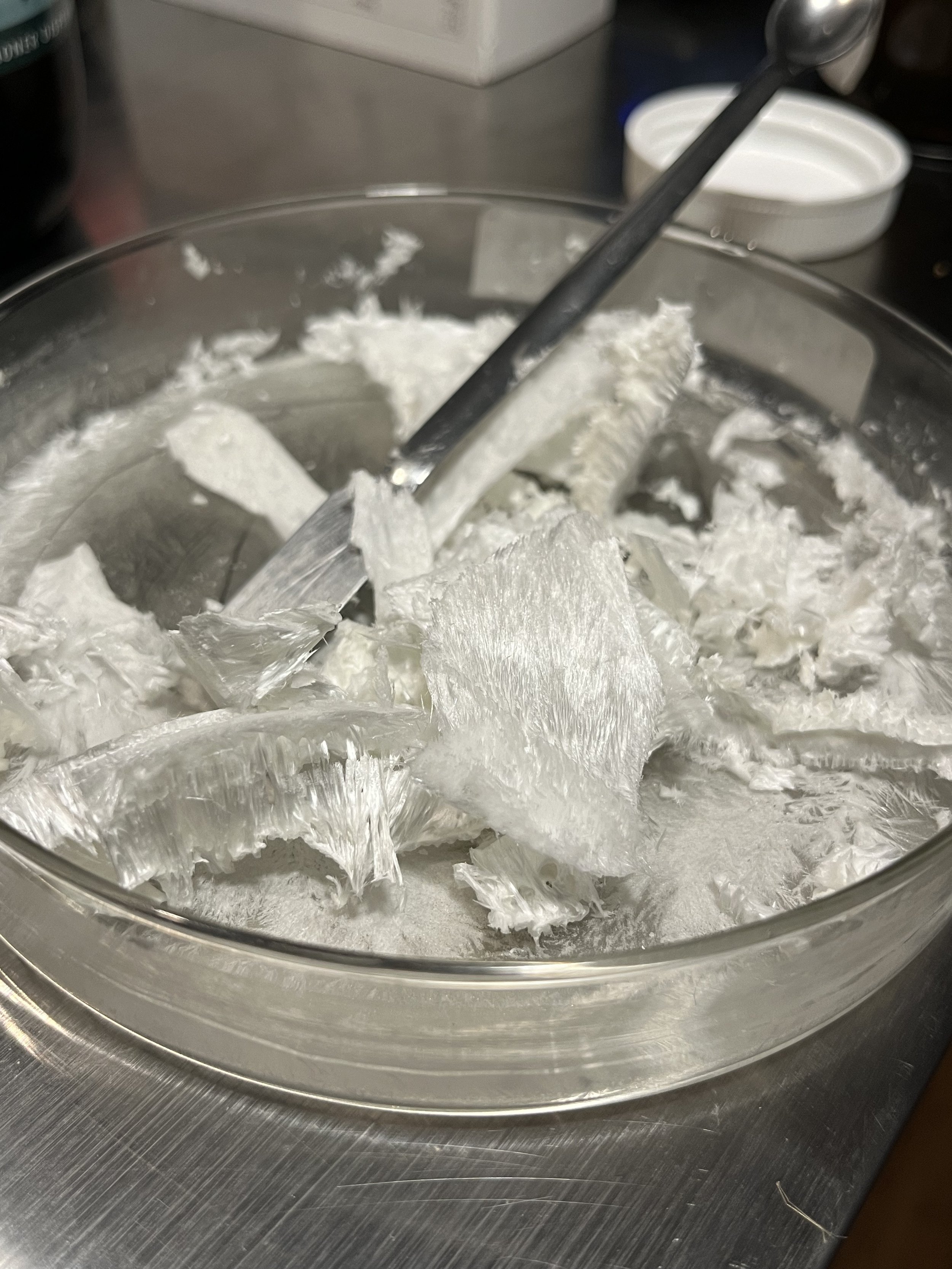Spagyric tinctures are prepared through an alchemical process that honours the full anatomy of the plant: the spirit, soul, and body. The volatile oils (soul), water & alcohol-soluble components (spirit), and purified mineral salts (body) are individually separated, refined, and then intentionally reunited. The result is a living preparation, not merely an extract, that carries the full life-force and signature intelligence of the plant in an exceptionally bioavailable form.
All of our herbal extracts use organically grown and/or ethically wildcrafted herbs and certified organic food-grade ethanol diluted to specific potencies in filtered and/or distilled rainwater, unless otherwise specified.
Damiana (Turnera diffusa) is a small shrub belonging to the passionflower (Passifloraceae) family, native to the subtropical regions of the Americas and Caribbean. The wet-heat of these regions aids in the development of damiana's medicinally active properties being mostly volatile oils, resin, glycosides and stimulating alkaloids.
Due to damiana's warming & drying energetics, it is traditionally used in helping to correct cold and damp(congested) environments, particularly within the nerves, reproductive, urinary, digestive and respiratory systems.
Typically considered to be a reproductive tonic for all people, damiana can help to reinvigorate sexual vitality by relaxing nervous tension, stimulating hormonal balance and restoring a weakened, fatigued & stagnant system.
Damiana is particularly beneficial for depressed or tense nervous states related to exhaustion, sexual trauma, and hormonal deficiencies. It can also help regulate delayed or sluggish menstrual cycles associated with these neuroendocrine presentations. Additionally, damiana may assist with damp lungs and excessive phlegm production within the respiratory and gastrointestinal environments which may present as chronic bronchitis, painful digestion, loss of appetite or constipation for example.
In some individuals long-term, consistent use of damiana can cause bladder and urinary tract irritation due to its drying and stimulating properties. If these symptoms arise, either cease use or combine with more moistening herbs (e.g., marshmallow root), to help nourish and soothe the urinary mucosa.
DOSE BOTANICALS DOES NOT MAKE ANY MEDICAL OR THERAPEUTIC CLAIM WITHOUT CONSULTATION. THIS INFORMATION IS FOR EDUCATIONAL PURPOSES ONLY.
Spagyric tinctures are prepared through an alchemical process that honours the full anatomy of the plant: the spirit, soul, and body. The volatile oils (soul), water & alcohol-soluble components (spirit), and purified mineral salts (body) are individually separated, refined, and then intentionally reunited. The result is a living preparation, not merely an extract, that carries the full life-force and signature intelligence of the plant in an exceptionally bioavailable form.
All of our herbal extracts use organically grown and/or ethically wildcrafted herbs and certified organic food-grade ethanol diluted to specific potencies in filtered and/or distilled rainwater, unless otherwise specified.
Damiana (Turnera diffusa) is a small shrub belonging to the passionflower (Passifloraceae) family, native to the subtropical regions of the Americas and Caribbean. The wet-heat of these regions aids in the development of damiana's medicinally active properties being mostly volatile oils, resin, glycosides and stimulating alkaloids.
Due to damiana's warming & drying energetics, it is traditionally used in helping to correct cold and damp(congested) environments, particularly within the nerves, reproductive, urinary, digestive and respiratory systems.
Typically considered to be a reproductive tonic for all people, damiana can help to reinvigorate sexual vitality by relaxing nervous tension, stimulating hormonal balance and restoring a weakened, fatigued & stagnant system.
Damiana is particularly beneficial for depressed or tense nervous states related to exhaustion, sexual trauma, and hormonal deficiencies. It can also help regulate delayed or sluggish menstrual cycles associated with these neuroendocrine presentations. Additionally, damiana may assist with damp lungs and excessive phlegm production within the respiratory and gastrointestinal environments which may present as chronic bronchitis, painful digestion, loss of appetite or constipation for example.
In some individuals long-term, consistent use of damiana can cause bladder and urinary tract irritation due to its drying and stimulating properties. If these symptoms arise, either cease use or combine with more moistening herbs (e.g., marshmallow root), to help nourish and soothe the urinary mucosa.
DOSE BOTANICALS DOES NOT MAKE ANY MEDICAL OR THERAPEUTIC CLAIM WITHOUT CONSULTATION. THIS INFORMATION IS FOR EDUCATIONAL PURPOSES ONLY.


